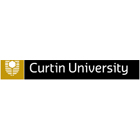- Berita & artikel
- Find usIDP AustraliaIDP BahrainIDP BangladeshIDP CambodiaIDP CanadaIDP ChinaIDP EgyptIDP GhanaIDP Hong KongIDP IndiaIDP IndonesiaIDP IranIDP JordanIDP KenyaIDP KoreaIDP KuwaitIDP LebanonIDP MalaysiaIDP MauritiusIDP Middle EastIDP NepalIDP New ZealandIDP NigeriaIDP OmanIDP PakistanIDP PhilippinesIDP Saudi ArabiaIDP SingaporeIDP Sri LankaIDP Taiwan, ChinaIDP ThailandIDP TurkeyIDP UAEIDP VietnamIDP Corporate
- Social
- Bahasa Indonesia
- Where we operate
- Courses
- Scholarships
- IELTS
- About IDP
- Student Essentials
- Berita & artikel
- Find us
- Find us
- Find nearest IDP offices
- IDP Australia
- IDP Bahrain
- IDP Bangladesh
- IDP Cambodia
- IDP Canada
- IDP China
- IDP Egypt
- IDP Ghana
- IDP Hong Kong
- IDP India
- IDP Indonesia
- IDP Iran
- IDP Jordan
- IDP Kenya
- IDP Korea
- IDP Kuwait
- IDP Lebanon
- IDP Malaysia
- IDP Mauritius
- IDP Middle East
- IDP Nepal
- IDP New Zealand
- IDP Nigeria
- IDP Oman
- IDP Pakistan
- IDP Philippines
- IDP Saudi Arabia
- IDP Singapore
- IDP Sri Lanka
- IDP Taiwan, China
- IDP Thailand
- IDP Turkey
- IDP UAE
- IDP Vietnam
- IDP Corporate
- Social
- Ubah Bahasa
- IDP Education /
- Kampus dan Universitas /
- Australia /
- Curtin University /
- Bachelor of Engineering (Ho...


Lokasi
Australia
Kualifikasi
Bachelor Degree with Honours
Biaya
AUD37507
(2025)
Durasi
4 Year(s)
Intake selanjutnya
24 February 2025
Skor masuk
6.0
IELTSCOURSE_INFO
Bachelor Degrees prepare students to develop broad and coherent knowledge and skills in a discipline for professional work and further learning corresponding to AQF level 7 qualifications. The honours component prepares students to develop advanced knowledge and skills for professional work, research and further learning corresponding to AQF level 8 qualifications.
With the core focus on developing problem-solving skills, Curtin’s BEng (Hons) course prepares the student to apply concepts of science, mathematics, data analytics, information science, and computing to practical application. The students take a system approach, including demonstrating explicit consideration for safety, ethics and climate impact, respect for the indigenous culture and science, and adherence to legal and professional standards. The course promotes advancing lifelong learning habits, teamwork and leadership abilities, project management skills, and identifying opportunities for career-wide professional growth.
After completing the Engineering Foundation Year (EFY), students can select from a range of discipline areas for their major from Year 2. In addition, students can take up an extension-specialisation to deepen their skills in the chosen major or select a specialisation or a minor to broaden their knowledge.You'll learn, bDemonstrate a conceptual understanding of fundamental science, mathematics, data analytics, information science, and computing underpinning the broad field of engineering, GC1. Solve complex electrical and electronic engineering problems of industrial and societal significance through the application of discipline-specific and integrated bodies of knowledge, design and sustainability principles, GC1. Make decisions related to the design and implementation of solutions to engineering problems in a safe, ethical and climate-responsible manner adhering to legal and professional standards and through respectful partnerships with local First Peoples and other diverse cultures as globally responsible citizens, GC4, GC5. Apply systems thinking for innovative solutions to global electrical and electronic engineering challenges, discern knowledge and undertake applied research in a discipline of electrical and electronic engineering, GC2.
Select and use current and emerging technologies to develop and communicate effective and innovative engineering solutions to complex problems, GC3. Demonstrate lifelong learning habits, teamwork and leadership abilities, and project management skills, and the ability to identify opportunities for career-wide professional growth, necessary for advancing a career in engineering and beyond, GC6
- Beasiswa Lihat semua jurusan
- Magang
Persyaratan masuk untuk Curtin University
IB - 28
IELTS Academic (International English Language Testing System)
Writing 6.0
Speaking 6.0
Reading 6.0
Listening 6.0
Overall band score 6.0
TOEFL IBT - 68
R 13
L 13
S 18
W 21
Batas Waktu Pendaftaran
Batas waktu pendaftaran tidak tersedia Hubungi konselor IDP untuk informasi lebih lengkap
Further information
If you aren't eligible for the above entry requirements, you might ant to explore pathway options at Curtin University. If you want to find out more, speak to our counsellors.
Peringkat Dunia THE
251st / 1250
Peringkat Dunia THEApa yang siswa kami pikirkan
Kami belum menerima ulasan apa pun untuk institusi ini.
Direkomendasikan untuk Anda
- Sarjana
- Australia
- Tipe pendanaan: Fee waiver/discount
- Sarjana
- Australia
- Tipe pendanaan: Fee waiver/discount
- Sarjana
- Australia
- Tipe pendanaan: Fee waiver/discount
- Sarjana
- Australia
- Tipe pendanaan: Fee waiver/discount
- Sarjana
- Australia
- Tipe pendanaan: Fee waiver/discount
- Sarjana
- Australia
- Tipe pendanaan: Fee waiver/discount
- Sarjana
- Australia
- Tipe pendanaan: Fee waiver/discount
- Sarjana
- Australia
- Tipe pendanaan: Fee waiver/discount
Your action plan
Langkah 1
Shortlist your courses
Choose the best three courses you’re most likely to pursue.
Langkah 2
Check your eligibility
Get an instant in-principle offer for courses with the IDP FastLane tag.
Langkah 3
Apply through IDP Live
Fill out the form once and use it to apply to multiple courses.
Bagaimana cara kerja IDP FastLane?
Dengan 'Offer in Principle' dari FastLane, Anda akan mengetahui apakah Anda dapat diterima dalam hitungan menit!
Pilih institusi dan mata kuliah
Buat profil akademik Anda
Kirimkan permohonan Anda untuk 'Offer in Principle'
Institusi pilihan Anda akan mengirimkan keputusan dalam hitungan menit!
Bersiaplah untuk mendaftar dengan konselor ahli




